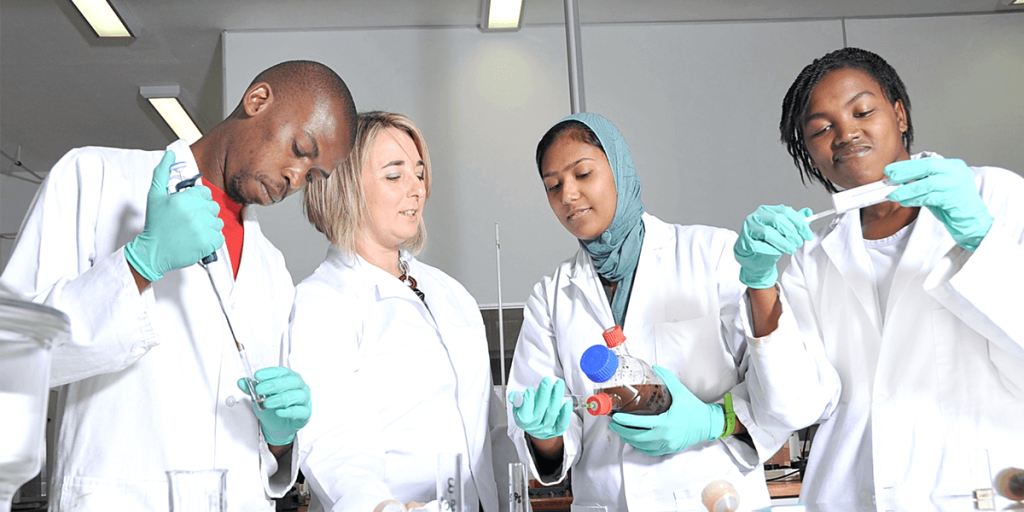Recycling byproducts of sugar refining

About the department
The University of KwaZulu-Natal (UKZN) is among the top research institutions in South Africa with substantial existing infrastructure and expertise; it also acts as a hub for training scientists from Sub-Saharan Africa. The Department of Chemical Engineering offers undergraduate and graduate training programs. In 2015, the department partnered with the Sugar Milling Research Institute to create a research group focused on improving local capacity and sustainability for the sugar industry.
The Department of Pharmacy at UKZN is a 2016 Instrumental Access partner.
Impact on development
The Department of Chemical Engineering is helping to strengthen the local economy by working with local farmers to repurpose biowaste from sugarcane farms.
Meet the Awardee

About the institution
Location:
Year established:
Number of faculty:
Number of students impacted annually:
Why Seeding Labs?
Equipment is needed to furnish a laboratory for the SMRI Sugarcane Biorefinery Research group’s research and graduate student training. Equipment will also be shared with the rest of the Chemical Engineering department, which is relatively under-equipped. Students and staff currently travel to other campuses to take advantage of equipment owned by departments of chemistry, physics, and biomedical sciences.
Did you know?
Using biowaste, the department has produced sugarcane wax popular among surfers.









